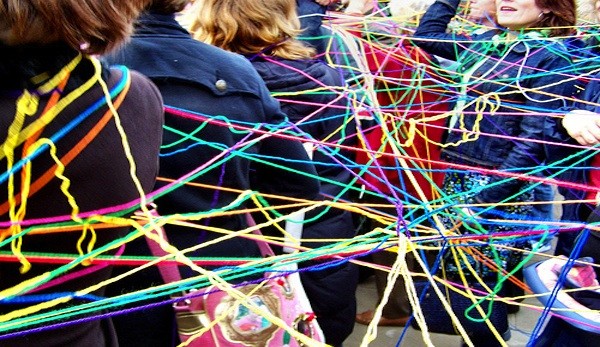dmlcentral.net
Why Is Everyone Worried About Attention Now?
If you read the newspapers of the early twentieth century, you realize that everyone was fretting then about the “horseless carriage.” They were positive that the new technology of an automobile that drove itself would push humans beyond their natural, God-given, biological limits. They worried it would not be safe because human attention and reflexes were not created to handle so much information flying past the windshield. That debate reached a crescendo in 1904 when the Hollywood film director, Harry Myers, received the world’s first speeding ticket for rushing down the streets of Dayton, Ohio, at death-defying speed. He was going twelve miles per hour. By 1930, pundits had calmed down about the automobile being too fast for the human brain and human reflexes but then Motorola came up with a handy new invention called the dashboard radio and that started a new round of worry. How could anyone pay attention to the roadway with music or commentary or radio soap operas distracting their attention? So now, again, we are at one of those moments of rapid technological change when attention again has our attention.… more
Becoming a Master in Knowledge and Networks
Last December, deans from the Graduate School and the College of Arts and Sciences at Duke University came to me and asked if I and the team at the Humanities, Arts, Sciences, and Technology Advanced Collaboratory (HASTAC) team based at Duke would assess the need and opportunity and then propose a multi-disciplinary Master's Degree that would help its graduates be prepared for communication, interaction, commerce, and other features of a digital age. We began work, putting calls out to the HASTAC and Digital Media and Learning community, soliciting feedback on our way to drafting a proposal for a new Master's degree in Knowledge and Networks. This is a degree that, by design, spans the two cultures of technology and science on the one hand, and human and social sciences and the arts on the other. It encompasses deep learning in the theory and history of communication, technology, and social networks with actual preprofessional (we're calling it "re-professional") training in project management, community building, and application of humanistic knowledge of communication in real-world settings, either with a social purpose (such as nonprofits) or as part of small businesses (entrepreneurship and innovation). We have shown these ideas to many faculty, and have arrived at a draft proposal ready to be seen and discussed, both at Duke University and by anyone in the world.… more
Education: Time to experiment, learn, share, mobilize
At HASTAC, we’ve been very excited this month to be one of the “community partners” for the upcoming Mozilla Drumbeat Festival: Learning, Freedom and the Open Web taking place in Barcelona, Nov. 3-5. The MacArthur Foundation is one of the sponsors of the event and the linkage between the Digital Media and Learning initiative and the Mozilla Drumbeat Festival promises to be exactly the right convergence of people, place, method, and timing to inspire new ways of thinking and learning together. No talking heads, but tents and self-organizing sessions, and real work plans and lesson plans for the future. … more


